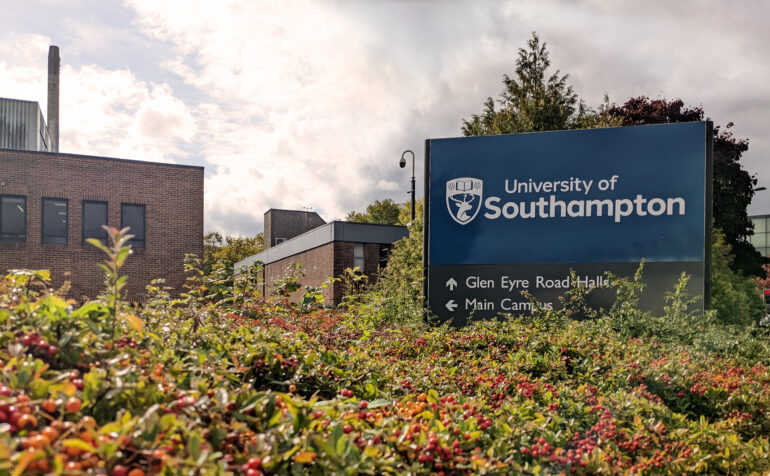TL;DR:
- University of Southampton pioneers two major AI projects for healthcare enhancement.
- AGENDA project focuses on utilizing AI algorithms for advanced genomic data analysis in clinical settings.
- RELOAD initiative employs AI to identify severe respiratory infections using audio data.
- AGENDA receives £744k UKRI grant, aimed at accelerating health research with AI innovation.
- RELOAD project secures £590k funding for developing an app to monitor respiratory sounds.
- Collaboration with other UKRI-funded AI projects to share best practices and minimize biases.
- Southampton University awarded £31M to lead Responsible AI UK consortium.
Main AI News:
In a groundbreaking stride towards the future of healthcare, dedicated researchers at the University of Southampton have embarked on two pioneering initiatives that leverage the prowess of artificial intelligence (AI) to enhance patient well-being.
The flagship project, AGENDA (AI methods applied to GENomic Data), stands as a testament to the university’s commitment to innovation. This endeavor is poised to revolutionize the analysis and interpretation of colossal genomic datasets through the deployment of cutting-edge AI algorithms and data modeling. The ultimate aim? To seamlessly integrate these advancements into real-world clinical landscapes, ushering in an era of accelerated diagnostics and personalized treatment modalities.
Leading the charge is the accomplished Professor Sarah Ennis from the Faculty of Medicine, rallying a diverse team encompassing medical practitioners, computer scientists, biologists, and chemists. This collaborative effort has garnered substantial support, with a prestigious £744k grant from the UK Research and Innovation (UKRI) as part of the Artificial Intelligence Innovation to Accelerate Health Research program, led by the Engineering and Physical Sciences Research Council (EPSRC).
Elaborating on the project’s significance, Professor Ennis elucidates, “This grant provides the opportunity to develop novel solutions to analysis of genomic data. By incorporating an automated AI-based toolkit, we will maximize data usage, significantly speed up the return of molecular diagnoses, and identify biologically relevant targets for personalized therapies. In the future, this will reduce hospital and treatment costs and provide digital systems, minimizing the need for manual curation.“
In tandem with AGENDA, the RELOAD (REspiratory disease progression through LOngitudinal Audio Data machine learning) initiative marks another stride toward healthcare transformation. This project harnesses the might of AI to discern patients susceptible to severe respiratory tract infections, an advancement set to redefine diagnostic accuracy and patient care.
The RELOAD venture, supported by a £590,000 grant from UKRI, unites the expertise of Professor Anna Barney from the Institute Of Sound & Vibration Research, Professor Nick Francis from the Faculty of Medicine at Southampton University, and the visionary Professor Cecilia Mascolo from the University of Cambridge. A groundbreaking aspect of this project is the development of an intuitive app that empowers patients to record their coughs, breathing patterns, and speech at distinct intervals. Through the art of machine learning, these recorded sounds are deciphered to ascertain the trajectory of the infection – whether it will resolve on its own or escalate to a critical state.
Respiratory Tract Infections (RTIs), spanning from commonplace colds to severe Pneumonia, pose a considerable healthcare challenge. Professor Anna Barney emphasizes, “Using acoustic data is a relatively underexplored application of machine learning. The AI in this application will reassure patients when an infection is self-limiting and direct patients to a GP when it is not. This should help to ensure that GP appointments are freed up for those that need them.”
These visionary endeavors are poised to propel the University of Southampton to the forefront of AI-driven healthcare innovation. In a remarkable display of collaboration, the institution is poised to work alongside fellow UKRI-funded AI projects to establish industry best practices, mitigate machine learning biases, and enhance transparency in AI decision-making processes.
Conclusion:
Southampton University’s trailblazing AI initiatives AGENDA and RELOAD showcase a paradigm shift in healthcare. These projects not only enhance diagnostics and patient care, but also set a precedent for AI integration in medicine. The university’s collaboration with other AI ventures signifies a collective commitment to refining AI practices. With significant funding and leadership in the Responsible AI UK consortium, Southampton is poised to shape the healthcare AI market, revolutionizing patient outcomes and industry standards.

